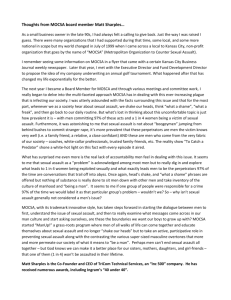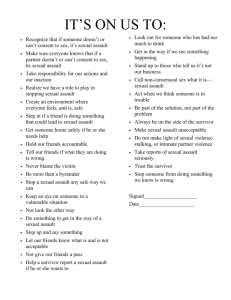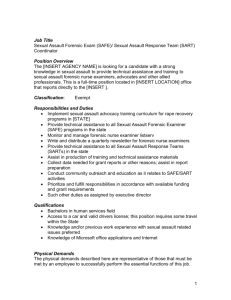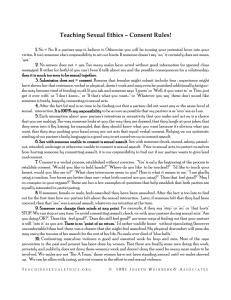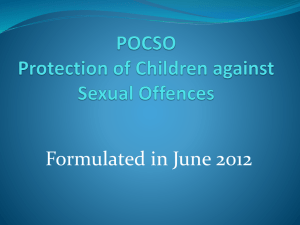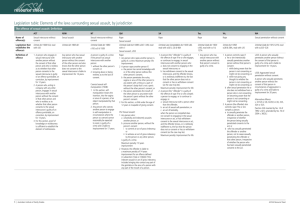Sexual Assault
advertisement
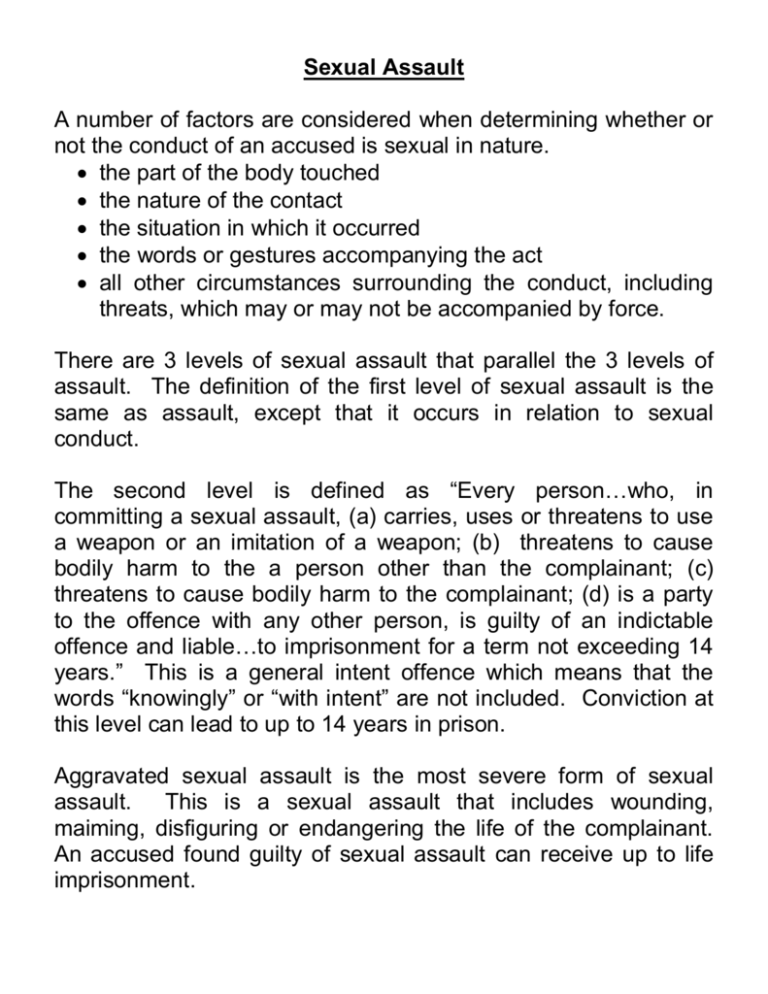
Sexual Assault A number of factors are considered when determining whether or not the conduct of an accused is sexual in nature. the part of the body touched the nature of the contact the situation in which it occurred the words or gestures accompanying the act all other circumstances surrounding the conduct, including threats, which may or may not be accompanied by force. There are 3 levels of sexual assault that parallel the 3 levels of assault. The definition of the first level of sexual assault is the same as assault, except that it occurs in relation to sexual conduct. The second level is defined as “Every person…who, in committing a sexual assault, (a) carries, uses or threatens to use a weapon or an imitation of a weapon; (b) threatens to cause bodily harm to the a person other than the complainant; (c) threatens to cause bodily harm to the complainant; (d) is a party to the offence with any other person, is guilty of an indictable offence and liable…to imprisonment for a term not exceeding 14 years.” This is a general intent offence which means that the words “knowingly” or “with intent” are not included. Conviction at this level can lead to up to 14 years in prison. Aggravated sexual assault is the most severe form of sexual assault. This is a sexual assault that includes wounding, maiming, disfiguring or endangering the life of the complainant. An accused found guilty of sexual assault can receive up to life imprisonment. The actus reus of sexual assault is the sexual touching to which the victim does not consent. The mens rea of sexual assault can rest on the knowledge that the victim gave no consent; recklessness; or wilful blindness (the perpetrator avoids asking the victim if consent is being given). Consent is frequently an issue in sexual assault trials, especially since there are usually few witnesses to sexual assault. Consent is not a defence where the victim is under the age of 14, unless the accused is less than 3 years older than the victim. Self-induced intoxication is not a defence if the accused drank so much that loss of self-control was bound to occur. A spouse can charge the other spouse for any level of sexual assault whether or not they are living together. Is the past conduct of the complainant relevant in a sexual assault trial? These factors may influence the judge and jury in terming whether or not consent was given or if the accused honestly believed it was. The Criminal Code now prohibits evidence of sexual reputation from being raised in court in order to challenge or support the credibility of the complainant. However, evidence about sexual activity of the complainant can be introduced after a judge has determined its value to the fairness of the trial. Some personal records of the complainant can be entered into evidence at trial. Among the records are: medical, psychiatric, therapeutic, counselling, education, employment, child welfare, adoption and social services records as well as person journals and diaries.
